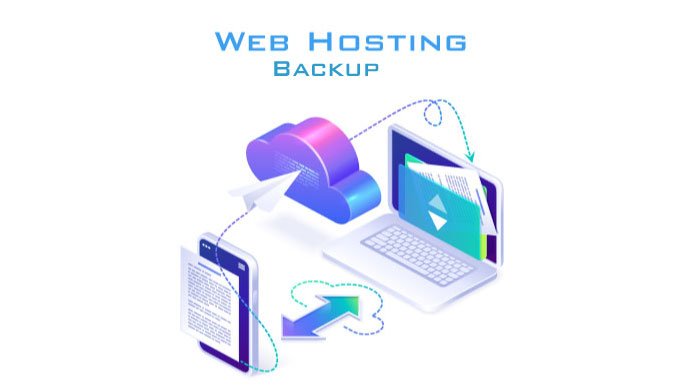Monthly backup
We at HelloIntech.com collect your data monthly backup to protect your website against data loss, data-stealing to ensure that your information is protected and your website is safe.
There are a lot of things you can do to keep your website safe, from choosing a top-notch web host to using strong passwords. However, the single most important step you can take is to perform website backups — early and often.
Having a recent backup of your site can help you in many situations. If you lose crucial data or your website gets hacked, having a backup readily available can solve your problems. Plus, it often doesn’t take more than a few minutes to get that backup file ready.
In this article, we’ll walk you through 10 reasons why you should back up your website right away. Let’s get to work!
1. Guard Against Human Error
Everyone makes mistakes from time to time. You might delete an important file on your website, make a change that breaks some of its functionality, and so on. There are ways to fix these kinds of errors, but in our experience, few are as efficient as restoring a previous backup.
To put this into perspective, imagine that a significant part of your website ceases to work. You have two options:
Identify the problem and look for a way to solve it.
Restore your website’s most recent backup and move on.
The first method can be quick or take a lot of time, depending on how serious the problem is. However, with the second approach, you can have your site up and running quickly. All you need is a recent enough backup that you won’t lose any valuable data.
The primary takeaway is that backups can save you in situations where you or someone else makes a mistake on your site. To be as safe as possible, you’ll want to create those backups frequently.
2. Reverse Problems During Updates
Updates are necessary to keep your site functioning smoothly. At the same time, it’s not uncommon to perform an update to your site, only to see something unexpectedly go wrong. That doesn’t mean you shouldn’t make changes — you just have to go about them safely.
Ideally, you’ll have an automatic backup system set up for your site. That way, if you update any of its key components, you’ll have a recent restore point available just in case. It’s also smart to make a manual backup before you start tinkering with your website.
It might take you a few minutes or longer to get that backup ready. However, you’ll be happy you made the time if anything goes wrong during the update process.
3. Prevent Loss of Data
Imagine that you have a blog with hundreds of posts, and someone on your team deletes one (or more) of them by mistake. In the past, we’ve seen people delete entire libraries of content because they didn’t know what they were doing or they gave certain users too many privileges.
One of the primary reasons to maintain a backup system is to ensure that your data will be safe, even in situations like the one described above. That means you need to have a full backup of your site in place, and the same goes for your personal data as well.
What’s more, data loss can occur even if there’s no human error involved. That means having backups is essential, even if you and your team know what you’re doing.
If you’re worried about losing important data, we recommend you take things one step further. Not only should you have multiple backups available, but you should also avoid keeping them all stored in the same location. We recommend uploading your latest backups to the cloud, as well as keeping a copy on your server for redundancy’s sake.
4. Handle Compatibility Issues After New Installations
If you use WordPress or any other Content Management System (CMS), then you probably rely a lot on add-ons, such as themes and plugins. Both types of tools can be incredibly handy. However, each time you install a new add-on, you’re introducing an element that might not play nicely with the rest of the site’s ecosystem.
Just as with updates, this doesn’t mean you should avoid plugins and themes. Instead, what you need to do is be careful about the ones you install. Make sure they have good reviews and ratings, and that the developers update them frequently.
You’ll also want to back up your website before you activate a new theme or WordPress plugin, just to be safe. With this approach, if a compatibility issue pops up, all you have to do is revert to a previous backup. Then, you’re free to install an alternative tool.
5. Resolve Malware Infections
A lot of people think of malware as something that can only affect personal computers. However, a surprising number of websites are infected with some kind of malware, and a lot more of them are vulnerable to it.
Even if you’re proactive about website security, attackers have highly-sophisticated techniques in their arsenals. Also, keep in mind that not even smaller, lesser-known websites are safe from attacks. WordPress users, for example, often face threats from bots looking for vulnerabilities they can exploit.
Troubleshooting malware can be particularly tricky since it’s hard to know when your site is fully clean. Even then, if you don’t identify and patch the security ‘hole’ that led to the infection, you’ll remain vulnerable. Having a backup ready to go will help you get your website clean faster.
6. Provide Protection Against Hackers
There may also be times when attackers try to access your site directly to deface it or steal important information. If someone manages to breach an account with administrative privileges, for example, they might change its credentials to lock you out of your site.





0 Comments